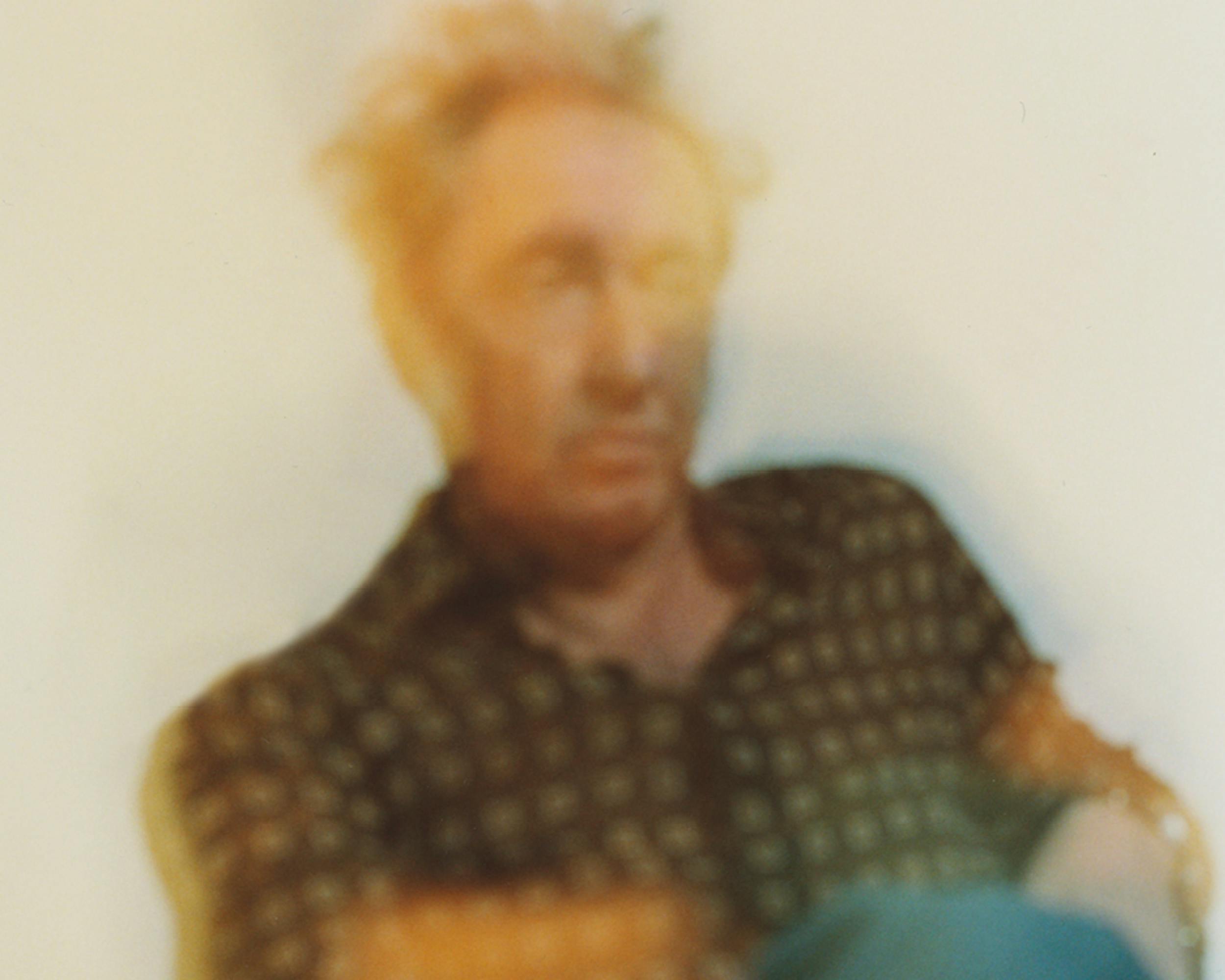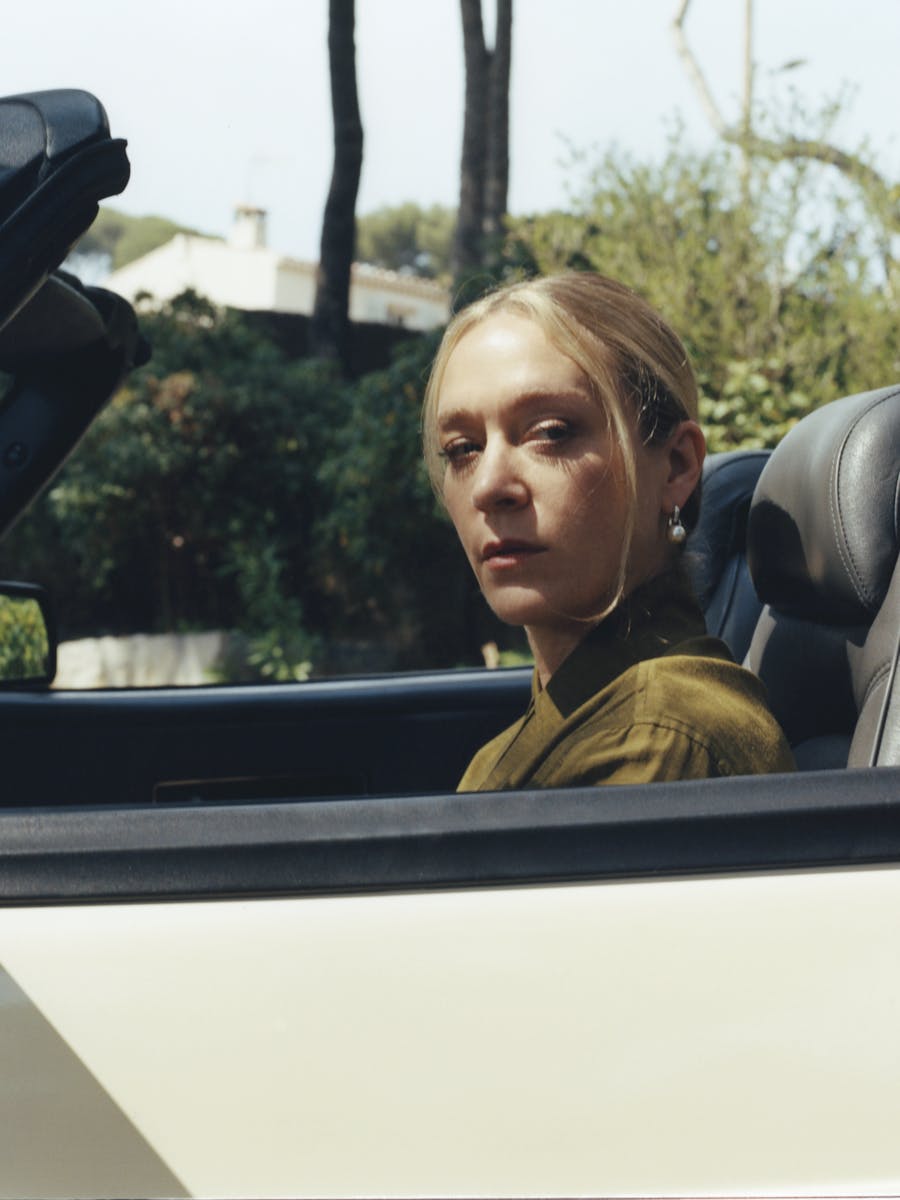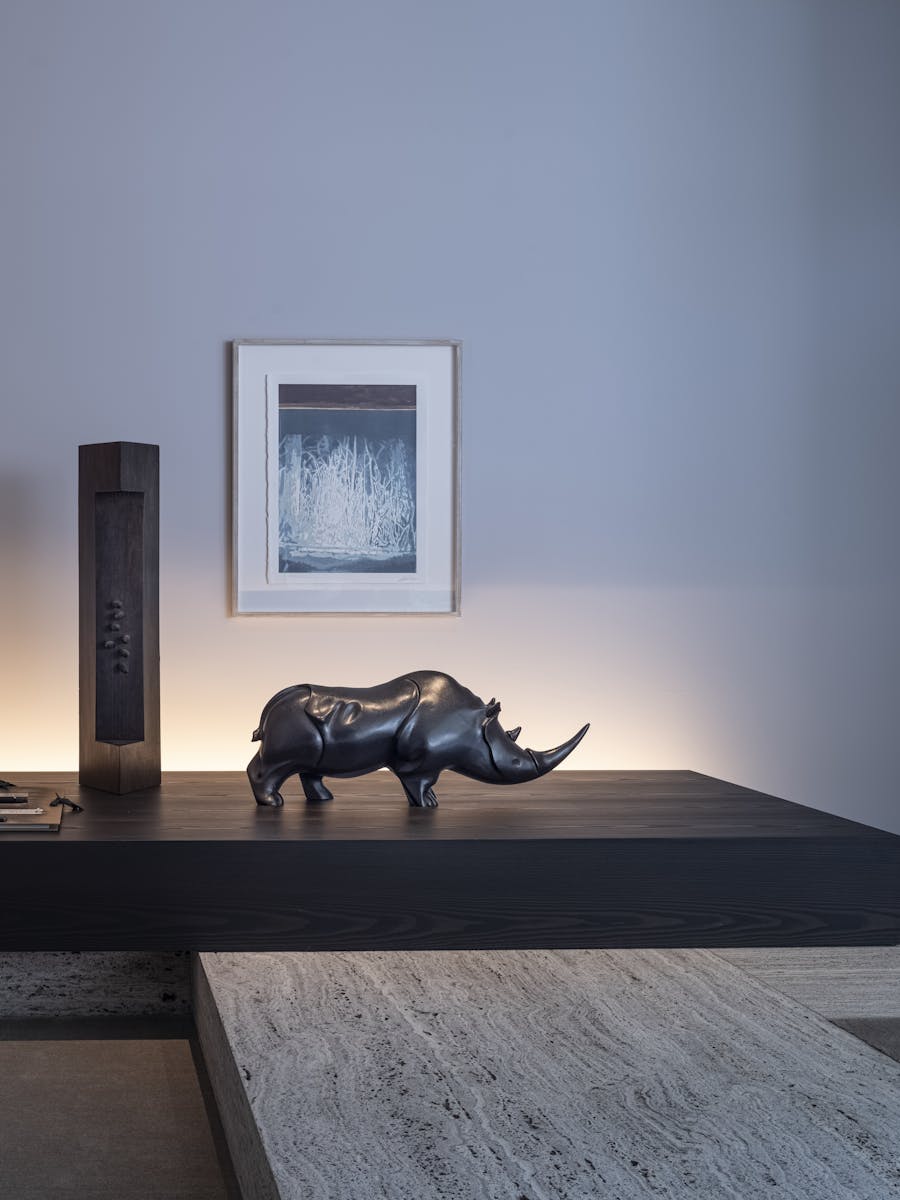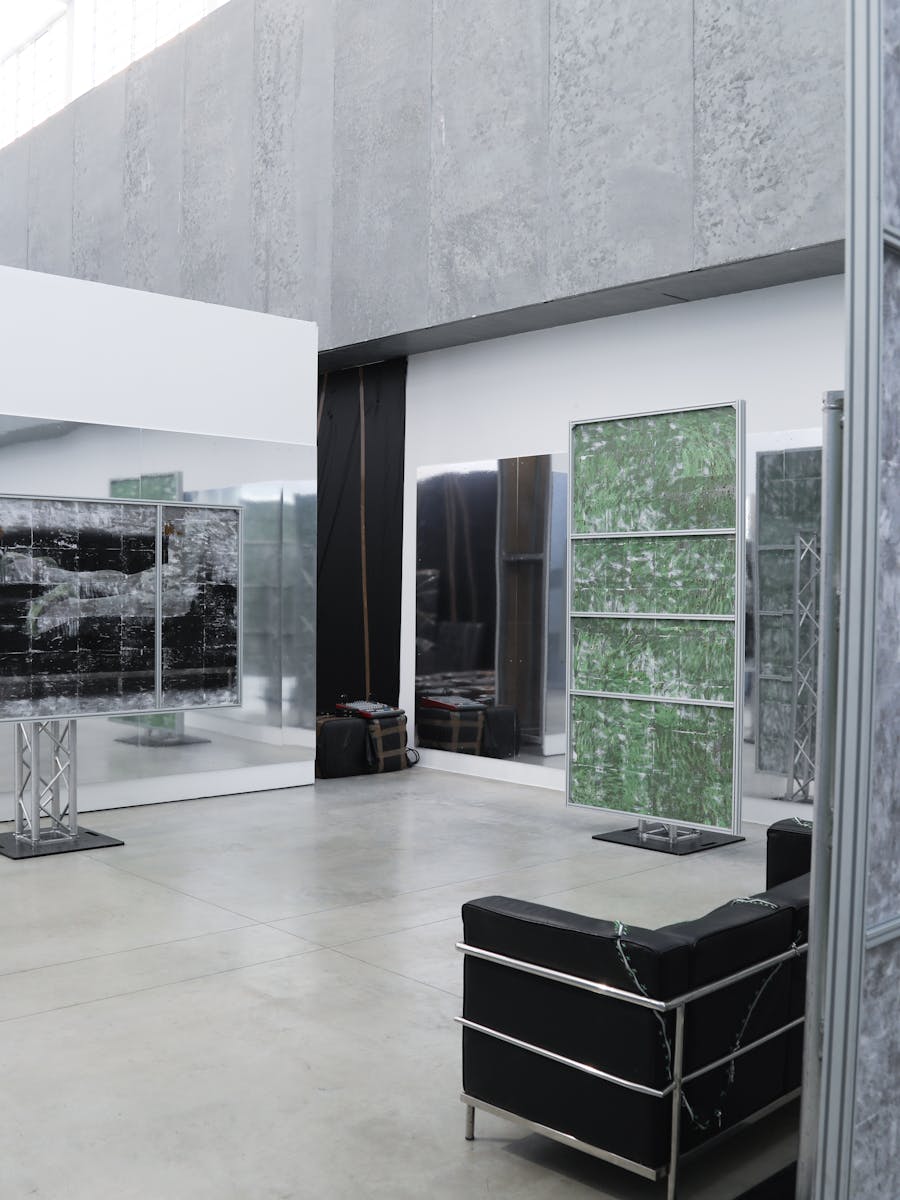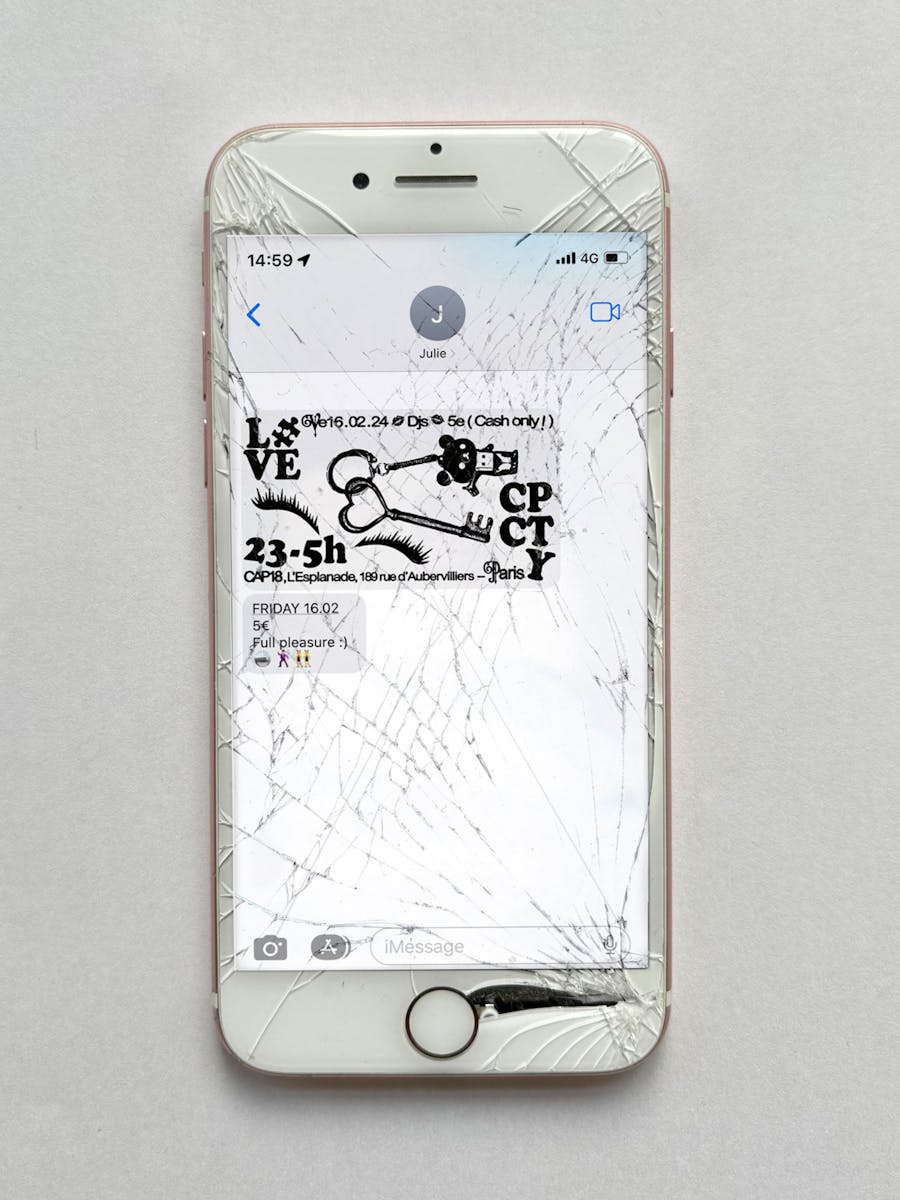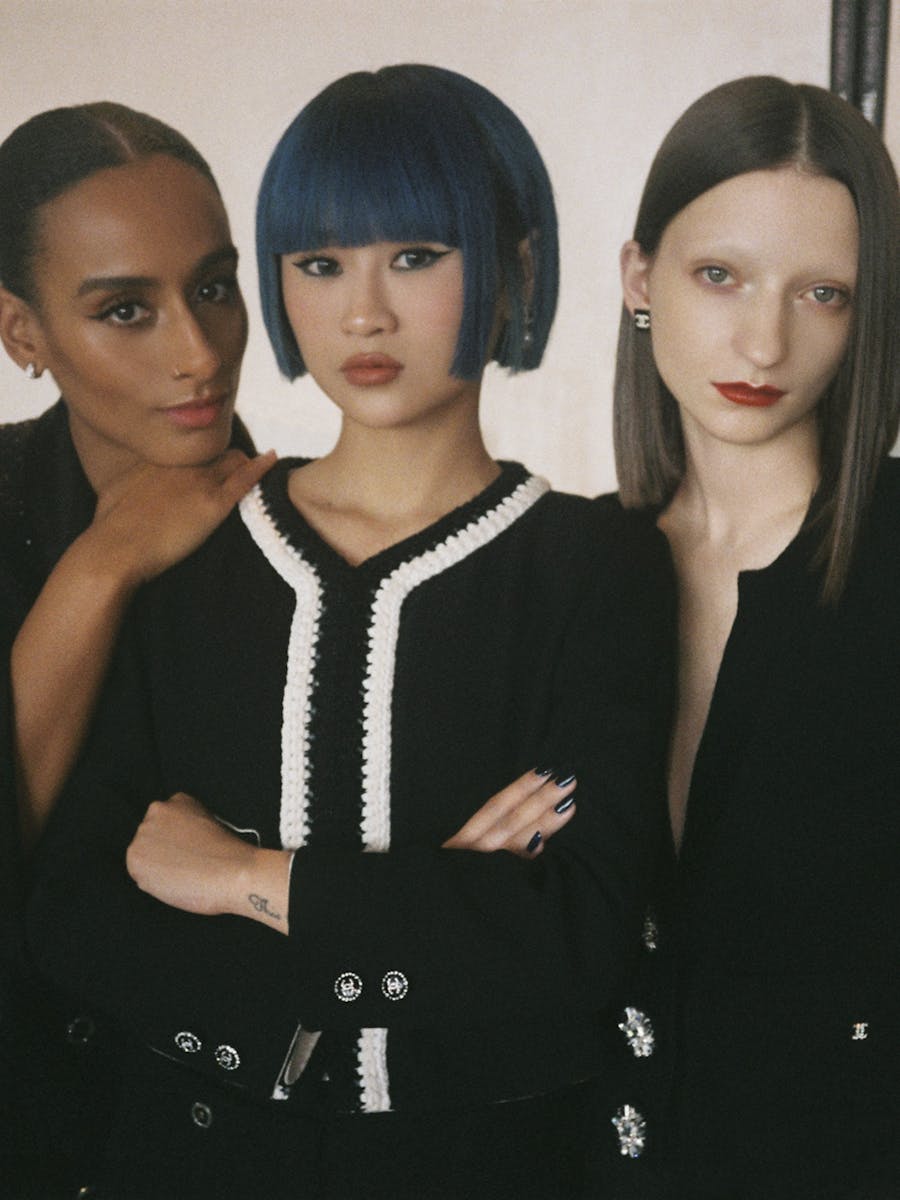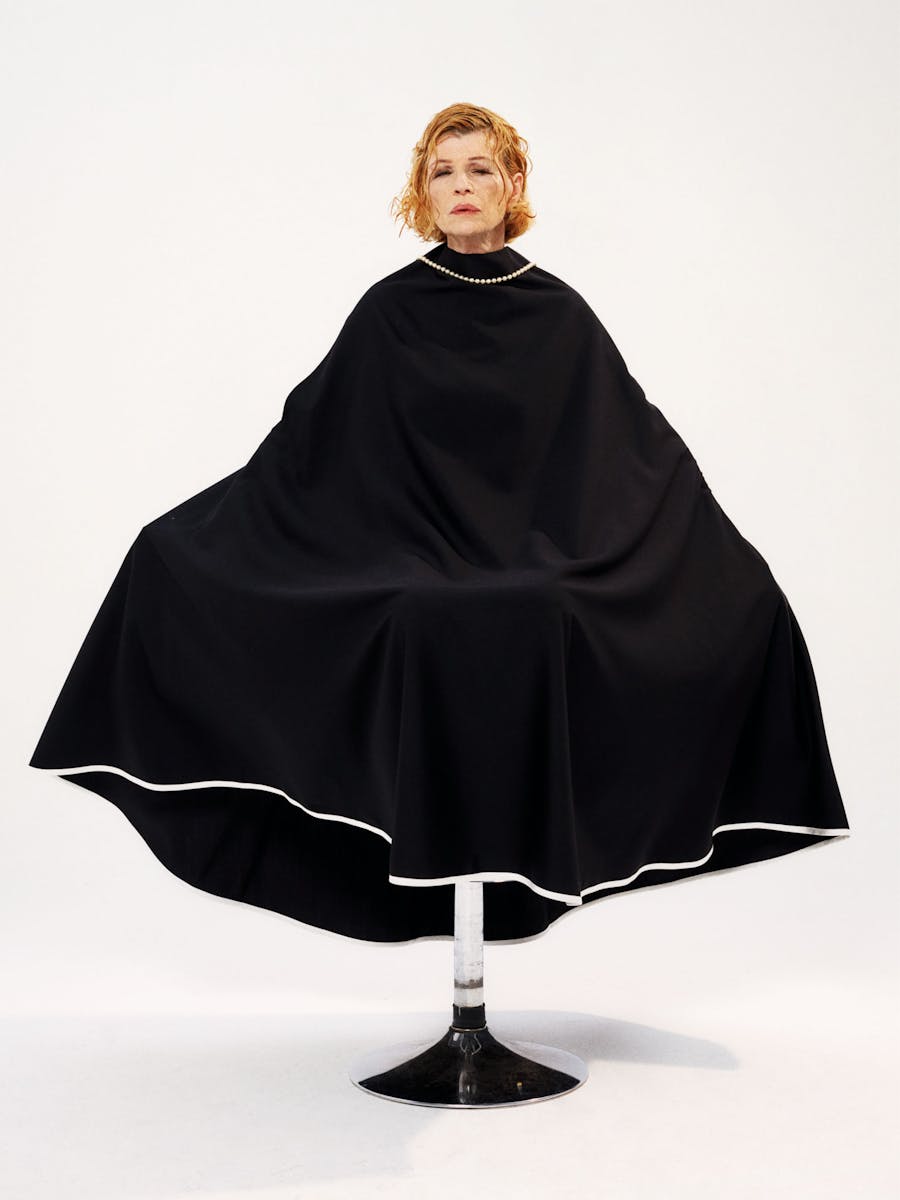From Ti Amo Issue
Paolo Sorrentino nous conte le passage du temps et des paradis perdus, dans une ode aux amori poveri et à leurs errances sempiternelles.
Après la fresque populaire et sensible du Naples de son enfance dans La Main de Dieu, Paolo Sorrentino signe son second film dédié à sa cité natale, Parthenope, en référence à la sirène qui, selon la légende, aurait fondé la ville. La divinité napolitaine inspire au réalisateur italien le récit épique de ce nouveau long-métrage présenté en compétition à Cannes en 2024. Coproduit par Saint Laurent Productions, la filiale de la maison dédiée à la production cinématographique et portée par Anthony Vaccarello, le film est une plongée dans le Naples hédoniste et intellectuel des années 1950 à nos jours, à travers le destin d’une femme, Parthénope, muse à la beauté divine, aussi brillante que désabusée.
C’est en Italie bien sûr, à Rome, qu’a lieu notre première rencontre avec le réalisateur, dans la ville même où il tourna La Grande Bellezza, chroniques exubérantes d’un romancier mondain au bord du crépuscule. Après le succès d’Il Divo et This Must Be The Place, le film remporte en 2014 un Oscar et un Golden Globe et consacre Paolo Sorrentino sur la scène internationale. Mais c’est à l’ombre du Vésuve, dans le Naples bouillonnant des 90’s, en plein âge d’or culturel, que l’italien fait ses armes au sein de « la Nouvelle Vague du cinéma napolitain ». À ses côtés : les réalisateurs Antonio Capuano, Mario Martone, Pappi Corsicato et son acteur fétiche, Toni Servillo. Le début des années 2000 marque la fin du règne de Cinecittà et le début d’une nouvelle ère pour le cinéma italien, dont Paolo Sorrentino sera la figure de proue.
Depuis, le réalisateur se plaît à dresser le portrait d’une Italie décadente et sublime, où se mêlent grandeur et dérision, pouvoir et solitude, dans une fresque réaliste où l’esthétique envoûtante sert de miroir à l’âme tourmentée de ses personnages. Telle une commedia dell'arte contemporaine, on y croise des divas, des cardinaux, des sommités et maintenant, une sirène. Paolo Sorrentino nous dévoile, dans ce numéro Ti Amo, un fragment de son discours amoureux.
Dans la mythologie grecque, Parthénope est une sirène, devenue divinité napolitaine. Comment votre personnage féminin, qui porte son nom, est-il né ?
P.S. Initialement, je voulais faire un film sur le passage du temps, un film épique. Dans la tradition littéraire et cinématographique, ce genre est généralement attribué à un protagoniste masculin mais il me semblait banal, voire obsolète, de l’aborder de cette manière. L’idée d’un personnage féminin, les batailles menées par les femmes aujourd’hui, m’ont semblé bien plus intéressantes à traiter pour bâtir une épopée moderne.
Mais Parthénope n'est pas nécessairement un personnage divin. C’est le regard que les autres posent sur elle qui lui confère ce caractère. En réalité, c’est une personne profondément ancrée dans le réel, qui comme tout le monde, surmonte les obstacles, la souffrance et traverse les différentes étapes de la vie.
Après le Naples intimiste de votre enfance et du joueur de foot Maradona (La Main de Dieu), Parthenope se déroule dans la haute société napolitaine. Quel rapport
entretenez-vous avec la ville de votre jeunesse ?
P.S. Naples est une ville où j'ai passé 37 ans de ma vie mais que je connais finalement peu. C’est un lieu très envahissant, parfois même dangereux par certains aspects. C’est une ville dont j’ai souvent eu peur. Je ne l’ai jamais vécue pleinement, je l’ai en quelque sorte subie. Alors, faire ce film m’a semblé être une occasion de devenir enfin acteur de la ville, de l’explorer à partir de l’idée que je m’en faisais, et peut-être même de l’inventer par endroits. La découvrir, comme j’aurais aimé la vivre lorsque j’étais jeune. En m’inspirant de ses piliers - la culture, la religion, la mer - j’ai construit tout un monde, vécu et fantasmé.
Imaginé comme la chronique de la vie d’une femme, Parthenope est un film initiatique sur le temps qui passe.
P.S. C’est un film sur la douleur de devenir adulte. Lorsque l’on est jeune, on a l’impression que tout est possible, on peut être n’importe qui. On se regarde dans le miroir et on joue à être quelqu’un d’autre. Mais vient un moment où on se regarde dans ce même miroir et, comme disait Nietzsche, on voit qui on est vraiment. L’illusion cesse de fonctionner, car on est devenu soi-même. Ce moment charnière est crucial. Mais ce qui est douloureux, ce n'est pas tant la perte de l'insouciance, que la perte de l’expansion infinie du désir.
Le film explore justement cette quête du désir et du vertige amoureux. Quelle est votre vision de l’amour ?
P.S. En fait, je partage la vision exprimée par plusieurs personnages du film, comme l’évêque et, bien sûr, Parthénope. La dernière réplique du film porte justement sur l’amour, elle admet que c’est un échec. Mais comment en être sûr ? L’amour, les prophètes en parlent, les philosophes en parlent, les écrivains en parlent. Même les auteurs de chansons populaires en parlent. S’il est autant évoqué, c’est parce qu’il demeure un mystère. Au fond, je ne sais pas ce qu’est l’amour.
Vos films auscultent souvent les rapports de pouvoir qui se jouent dans la société, la religion, la politique. Ici, cela passe notamment par la beauté et la jeunesse. Vous dites d’ailleurs dans le film que « la beauté, c'est comme la guerre, elle ouvre des portes ».
P.S. La beauté est une arme à double tranchant. C’est un instrument qui peut conférer du pouvoir, mais aussi le retirer. Elle suscite à la fois l’admiration et l’envie ; elle produit donc un effet contradictoire, ambigu. Mais cette admiration se transforme souvent en jalousie, on peut être victime de sa beauté.
Avec l’avènement des réseaux sociaux, pensez-vous que notre société sacralise encore davantage la beauté ?
P.S. Au contraire, il me semble que la beauté a cessé d’être une priorité. Dans la quête incessante du bien, elle passe au second plan, et peut-être est-ce une bonne chose. La beauté n’est, après tout, qu’un élément parmi d’autres, au même titre que la force, l’intelligence ou le charisme. Ce sont tous des attributs qui influencent les rapports de pouvoir.
Parthenope a été produit par Saint Laurent Productions, sous l’égide d’Anthony Vaccarello, également directeur artistique de la maison parisienne. Quelle importance accordez-vous au style, toujours très pointu, de vos personnages ?
P.S. Je n’y accorde pas beaucoup d'importance. Je ne suis pas un amoureux de la mode, ni des défilés. En réalité, ce sont des choses sur lesquelles travaillent les costumiers.
Comme dans La Grande Bellezza, on retrouve dans le film une forme d’hédonisme et de légèreté feinte : un palazzo au bord de la mer, le soleil et des nuits sans fin à Capri. Diriez-vous que la joie, la fête et une forme de carpe diem sont des thèmes récurrents dans votre cinéma ?
P.S. Cela me passionne, car la vie a fait que je suis l’exact opposé de ce que j’évoque. La joie, l’hédonisme, la légèreté, la frivolité même, sont des concepts qui me sont étrangers et que je ne connais absolument pas dans mon quotidien. Je ne sais pas les vivre dans la réalité, mais j’aime les explorer dans cette vie fictionnelle qu’est pour moi le cinéma.
On découvre aussi un Gary Oldman en écrivain crépusculaire, en proie à des tourments intérieurs et à l’alcool. Pensez-vous que l’artiste soit voué à une existence solitaire, presque tragique ?
P.S. Je crois, oui. Un poète français a dit que « écrire, c'est commémorer les cadavres de nos jours ». Tout est dit. Pour écrire, il faut être seul.
Dans le film, vous posez cette question: peut-on être heureux dans le plus beau pays du monde ?
P.S. Je pense que le bonheur réside dans l’acte de tendre vers quelque chose, et non dans le fait de vivre ou de posséder cette chose. Mais pour tendre vers un idéal, il faut éprouver un manque, un déséquilibre. Or, une ville comme Naples ne génère pas ce manque. Elle engendre plutôt une forme de torpeur, une sorte d’anesthésie. Naples vous donne souvent cette illusion que vous êtes comblé.
Vous auriez aimé réaliser un film comme celui de François Truffaut, L'homme qui aimait les femmes. Pourquoi celui-ci en particulier ?
P.S. Parce qu’il raconte, de manière sublime, l’histoire d’un homme resté enfant. Au fond, c’est un rêve. J’aurais aimé ne jamais grandir. Ce film réalise ce rêve. Il ne se limite pas à être beau, il m’émeut et me met en joie.
Dans les années 90, vous faites partie de la Nouvelle Vague napolitaine avec notamment Antonio Capuano, votre mentor, ou Toni Servillo, l’un de vos acteurs fétiches.
P.S. Nous venions d’une ville extrêmement vivante sur le plan culturel. Dans les années 90, Naples a connu une sorte de révolution politique, qui a entraîné une effervescence culturelle. Nous avions le sentiment d’être au centre du monde. Cela a provoqué une forme d’euphorie, une volonté immense de créer. Nous étions sans doute plus déterminés, plus prolifiques, plus enthousiastes que d’autres, car nous étions portés par l’idée que tout était possible. C'était notre moment.
Ce numéro s’intitule « Ti Amo ». Vous considérez-vous comme un romantique dans l'âme ?
P.S. Oui, je suis romantique, sentimental. Je ne me cache derrière aucune construction intellectuelle. Ce qui me plaît dans mes films, avant tout, c’est de parler des émotions et des sentiments.
Vous êtes l’un des réalisateurs les plus adoubés de votre génération. Que peut-on vous souhaiter pour la suite ?
P.S. De retrouver le même enthousiasme que j'avais il y a 25 ans, à une époque où personne ne me considérait capable de faire ce métier.
Pour conclure, quel est le plus beau mot de la langue italienne ?
P.S. Amore.
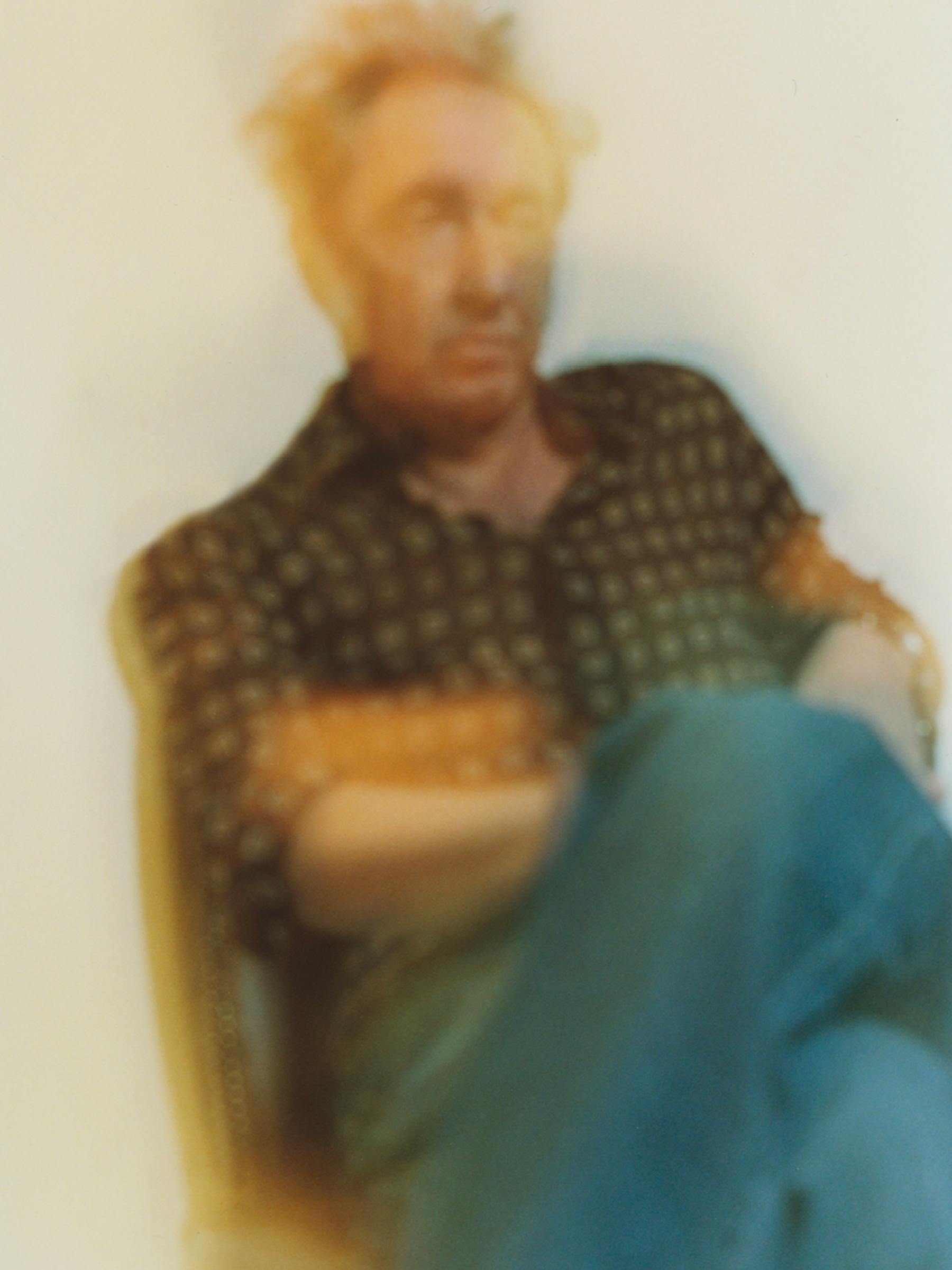
All clothing SAINT LAURENT by Anthony Vaccarello
Earring Paolo's own
Translated from French
Paolo Sorrentino tells us a story about the passage of time and lost paradises, in an ode to sincere and undefinable lovers, amori poveri, and their eternal wanderings.
After the sweeping, sensitive fresco of the Naples of his childhood in The Hand of God, Paolo Sorrentino has now completed a second film dedicated to his hometown. The title, Parthenope, refers to the siren who, according to legend, founded the city. The Neapolitan divinity has inspired the Italian director's new feature film, which screened in competition at Cannes in 2024. Coproduced by Saint Laurent Productions, the film production subsidiary of the fashion house headed by Anthony Vaccarello, the film plunges us into a hedonistic and intellectual Naples, from the 1950s to the present day, through the destiny of one woman, Parthenope. A muse of divine beauty, as glamorous as she is disenchanted.
It was of course in Italy, in Rome, where Exhibition first met with the multi-awardwinning director in the very city where he shot La Grande Belleza (2013); an exuberant chronicle of the life of a society novelist in his declining years. After the success of Il Divo and This Must Be The Place, La Grande Bellezza won both a Golden Globe and an Oscar in 2014 and brought Paolo Sorrentino major international acclaim. But it was in the shadow of Vesuvius, in the turbulent Naples of the 1990s, in a cultural golden age, that the young director first learnt his trade as part of 'the new wave of Neapolitan cinema', alongside Antonio Capuano, Mario Martone, Pappi Corsicato and his favourite actor, Toni Servillo. The dawn of the twenty-first century marked the end of the Cinecittà years and the start of a new age for Italian cinema, of which Paolo Sorrentino would be the leading figure.
Since then, the director has delighted in portraying the picture of an Italy that is both decadent and sublime, where grandeur and mockery, power and solitude, co-exist, in a fresco whose intoxicating aesthetic mirrors the tormented souls of his characters. Like a contemporary commedia dell'arte, divas, cardinals and stars all mingle together. Now there is a siren in the mix. From the eternal city to a fantasmatic Naples on the shores of the Mediterranean, Paolo Sorrentino offers us, in this “Ti Amo” edition, a fragment of his lover's discourse.
In Greek mythology, Parthenope is a siren who became a Neapolitan divinity. Where did your female character, who bears her name, come from?
P.S. Initially, I wanted to make a film about the passing of time, an epic film. In the literary and cinematic tradition, this genre involves masculine characters, but it seemed so banal, practically obsolete, to approach it in this way. The idea of a female character, and the battles led by women today, seemed far more interesting as the basis for a modern epic. But Parthenope is not necessarily a divinity. That status is conferred upon her by others. In reality, she’s a character who is deeply rooted in the real, who, like everyone, overcomes obstacles and pain, and goes through different phases in life.
After the Naples of the Maradona era (The Hand of God), Parthenope takes place within Naples' high society. What links do you maintain with the city of your youth?
P.S. Naples is a city where I spent 37 years of my life and yet, it’s not a city I knew very well. It's very invasive, even dangerous in certain regards. It’s a city I was often afraid of. I never truly experienced it; in a way, I endured it. So, making this film felt like an opportunity to finally become an actor within this city – to meet it, to explore it from the idea I had of it, and maybe even invent it in some ways. To discover Naples as I would have liked to experience it when I was young. Drawing inspiration from the pillars of this city–culture, religion, the sea–I created a world, both experienced and imagined.
Imagined as the chronicle of a woman’s life, Parthenope is above all, a coming-of-age story about the passing of time.
P.S. It’s a film about the pain of becoming an adult. When you’re young, you feel like everything is possible, you can be anyone. You look at yourself in the mirror and play at being someone else. But then comes a moment when we look into that same mirror and, as Nietzsche said, we see who we truly are. The illusion stops working because you’ve become yourself. That turning point is crucial. But what’s painful is not so much the loss of insouciance, but the loss of the infinite expansion of desire.
Indeed, the film explores this quest for desire and the folly of love. Could you please tell us about your vision of love?
P.S. In fact, I share the vision expressed by different characters in the film, such as the bishop, but also Parthenope, of course. The final line of the film is precisely about love, it’s her admitting that it’s a failure… But how can we be sure? Love - the prophets talk about it, the philosophers, the writers. Even pop songwriters are talking about it. If it’s such a common subject, it’s because there is some mystery, something we cannot decipher. Ultimately,
I don’t really know what love is.
Your films often explore power relations at work in society, religion, and politics. Here, the focus is on youth and beauty. Indeed, in the film you say that, ‘beauty is like war; it opens doors’.
P.S. Beauty is a double-edged sword. It is an instrument that can both confer power and take it away. It provokes both admiration and envy, creating a contradictory, ambiguous effect. But admiration often turns into jealousy—one can become a victim of their own beauty.
With the rise of social media, do you think our society glorifies beauty even
more today?
P.S. On the contrary, it seems to me that beauty has ceased to be a priority. In the endless search for the good, it recedes into the background, and that is perhaps a good thing. Beauty is, after all, only one element among others, no more important than strength, intelligence or charisma. These are all attributes that influence power relations.
Your films have a strong sartorial sensibility. How much importance do you attribute to the style of your characters?
P.S. I don't place much importance on it. I’m not a lover of fashion or catwalks. In reality, those are decisions made by the costume designers.
As in the opening scene of La Grande Bellezza, we find a kind of faux playfulness and hedonism in the film: a palazzo by the sea, the sun, and endless nights on the island of Capri. Would you say that joy, parties, and a kind of carpe diem are
recurring themes in your oeuvre?
P.S. It’s fascinating because life has made me the exact opposite of what I evoke. Joy, hedonism, playfulness, even frivolousness: those are foreign concepts to me, ones I absolutely do not recognise in my daily life. I don’t know how to experience them in reality, but I like to explore them in this fictional life which, for me, is cinema.

All clothing SAINT LAURENT by Anthony Vaccarello
Earring Paolo's own
We also have Gary Oldman as a writer in the twilight of his career, in the grip of alcoholism and internal torment. Do you think that the artist is condemned to a solitary, almost tragic existence?
P.S. I think so, yes. A French poet said ‘to write is to commemorate the corpses of our days.’ To write, one must be alone. In the film, you ask this question: is it possible to be
happy in the most beautiful country in the world?
I think that happiness lies in the act of orienting yourself towards something, not in the fact of attaining or possessing that thing. But to orient yourself towards an ideal, you have to experience a lack of, an imbalance. A town like Naples just doesn’t generate that lack. Instead, it creates a type of torpor, a sort of anaesthesia. Naples often gives you the illusion that you are full.
You would have liked to direct a film like L’homme qui aimait les femmes, by Truffaut. Why that film, in particular?
P.S. Because it tells the story of a man who remains a child and does so magnificently. Fundamentally, it is a dream. I would have liked to never grow up. That film realizes that dream. It is not just beautiful: it moves me and makes me feel very joyful.
In the 1990s, you were part of a Neapolitan New Wave with directors like Mario Martone, your mentor Antonio Capuano, and Toni Servillo, whom we’ve seen in a number of your films.
P.S. We came from an extremely lively city, culturally speaking. In the 1980s, Naples underwent a sort of political revolution, which brought about a cultural awakening. We felt like we were at the centre of the world. It provoked a kind of euphoria, a tremendous desire to create. We were probably more determined, active and enthusiastic than others, as we were buoyed by the idea that everything was possible. It was our moment.
This issue is called “Ti Amo”. Are you a romantic soul?
P.S. Yes. I’m romantic, I’m sentimental. I don’t hide behind any kind of intellectualism. What I like in my films is, first and foremost, talking about emotions and feelings.
You’ve won numerous awards throughout your career—including an Oscar in 2014, two prizes at Cannes, and four at Venice. You’re one of the most celebrated directors of your generation. What do you hope for next?
P.S. Finding the same enthusiasm that I had 25 years ago—at a time when no one thought I was capable of doing this job.
What is the most beautiful word in Italian?
P.S. Amore.
